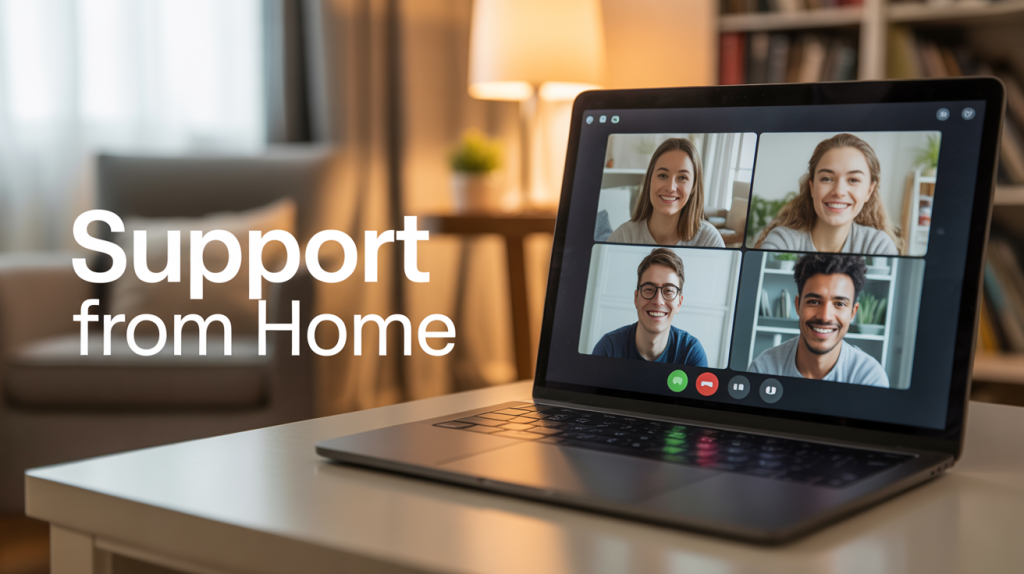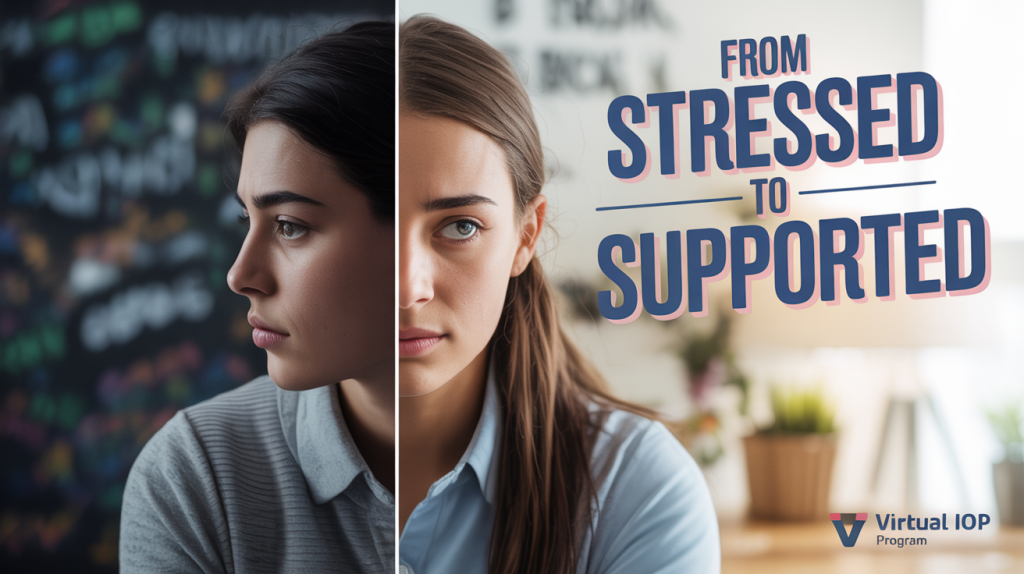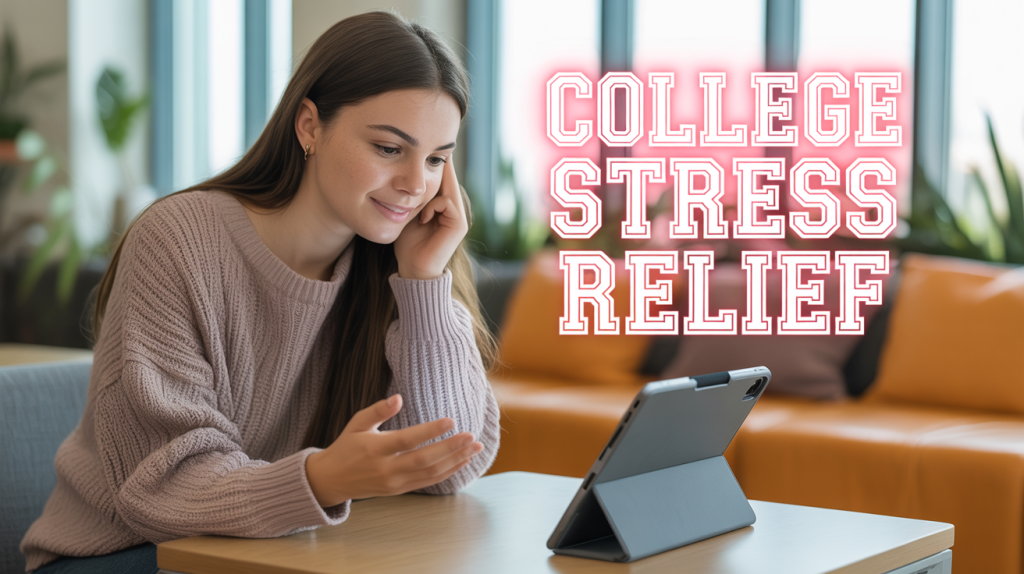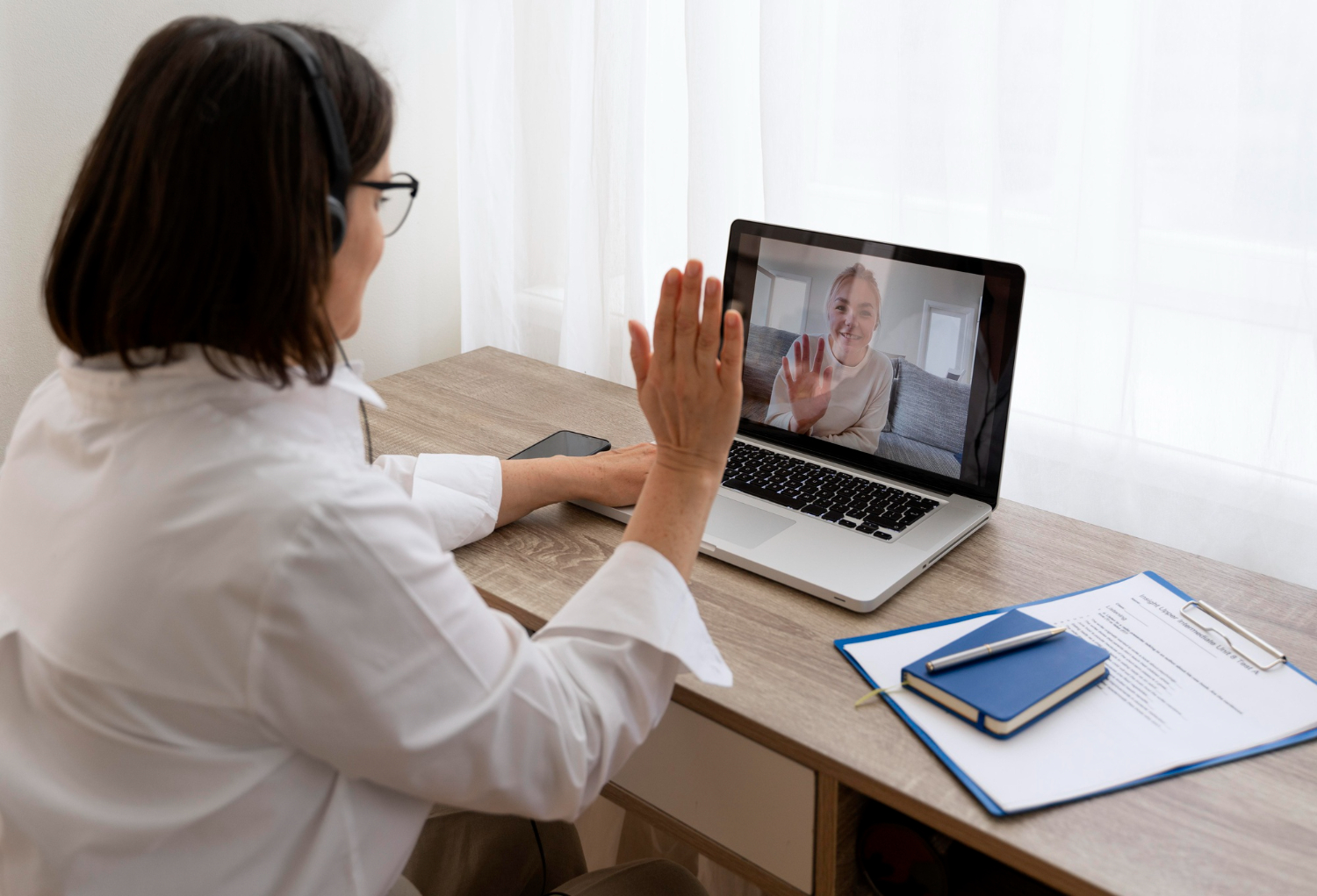Virtual IOP for College Students and Young Adults in California: Flexible Online Mental Health and Addiction Treatment
College life often coincides with emerging mental health and substance use challenges, and nearly half of students meet criteria for at least one disorder each year. Discover how a virtual Intensive Outpatient Program (IOP) delivers structured therapy through secure telehealth platforms to improve emotional resilience, academic performance, and recovery outcomes. This article explains what a virtual IOP is, who benefits most, which evidence-based therapies are used, program logistics in California, participant experiences, unique advantages of Compassion Recovery Centers, common concerns, and strategies for sustaining progress after graduation.
What Is a Virtual Intensive Outpatient Program (IOP) for College Students and Young Adults?
A virtual IOP is a structured telehealth service combining psychotherapy, peer support, and family engagement to treat mental health conditions and substance use disorders remotely. Through scheduled video sessions, secure messaging, and online educational modules, participants improve coping skills and relapse-prevention strategies while maintaining daily routines. This flexible model enhances accessibility for students across California, reducing wait times and geographic barriers to timely care.
How Does Virtual IOP Work for Mental Health and Addiction Treatment?
Virtual IOP uses encrypted video conferencing and interactive digital workbooks to deliver individual and group sessions on a weekly schedule. Licensed clinicians guide skills-based modules, teach evidence-based interventions, and monitor progress through secure online assessments. Participants gain real-time feedback, practice coping strategies in their environments, and receive crisis support through telehealth hotlines. This seamless integration of technology and therapy promotes continuity of care and reduces treatment disruption.

What Are the Key Components of Virtual IOP: Individual, Group, and Family Therapy?
Virtual IOP blends three core elements:
- Individual Therapy focuses on personalized treatment planning and one-on-one skills coaching.
- Group Therapy cultivates peer connection, shared experiences, and social learning around recovery challenges.
- Family Therapy strengthens communication, sets healthy boundaries, and fosters a supportive home environment.
These combined services enhance self-awareness, peer accountability, and interpersonal resilience, setting the stage for sustained recovery and academic success.
How Does Virtual IOP Compare to In-Person IOP and Online Therapy?
Below is a comparison of treatment formats highlighting structure, interactivity, and flexibility:
| Format | Structure | Accessibility |
|---|---|---|
| Virtual IOP | Fixed weekly sessions with individual, group, and family components | Participate from any location in California |
| In-Person IOP | On-site, multi-session days with direct clinician oversight | Requires travel and fixed facility hours |
| Standalone Online Therapy | One-on-one counseling only via video or chat | Highly flexible but lacks group and family integration |
Virtual IOP secures the comprehensive support of in-person programs while offering the convenience and privacy of online therapy.
Who Benefits Most from Virtual IOP in California?
Virtual IOP serves young adults facing mental health or substance use challenges who need structured support without disrupting studies or work. Students at community colleges, veterans balancing service-related trauma, and young professionals juggling multiple responsibilities find this model especially effective. The online format addresses academic pressures, social anxieties, and co-occurring disorders with minimal interruption to daily life.
What Mental Health and Substance Use Conditions Does Virtual IOP Treat?
Virtual IOP provides integrated care for:
- Anxiety disorders and panic attacks
- Major depressive disorder and mood swings
- Substance use disorders including alcohol, stimulants, and opioids
- Trauma-related conditions, including PTSD
- Dual diagnosis cases combining mental health and addiction
By treating co-occurring issues holistically, participants develop comprehensive relapse-prevention and emotional regulation skills tailored to their unique profiles.
Benefits of Integrated Treatment for Co-occurring Disorders
Integrated treatment approaches, which address both mental health and substance use disorders simultaneously, have been shown to lead to better outcomes compared to treating these conditions separately. This approach is particularly beneficial for individuals with co-occurring disorders.
Brown, A., Substance Abuse and Mental Health Services Administration (SAMHSA) (2021)
Why Is Virtual IOP Ideal for College Students and Young Adults Balancing Academics and Life?
Virtual IOP offers flexible scheduling that fits around class timetables, part-time jobs, and extracurricular activities. Secure telehealth platforms eliminate commute times, reduce stigma, and allow participation from familiar surroundings. Privacy controls and discreet login options preserve confidentiality within shared housing or family homes. This adaptability promotes consistent engagement and better academic outcomes.
How Does Virtual IOP Support Veterans and Young Adults with Trauma or PTSD?
Specialized trauma-informed modules address service-related stressors through telehealth-adapted EMDR sessions, grounding exercises, and peer support groups for veterans. Therapists certified in military culture deliver targeted interventions that mitigate hypervigilance, nightmares, and avoidance behaviors. Family sessions include education on trauma triggers, strengthening reintegration and long-term resilience.
What Evidence-Based Therapies Are Used in Virtual IOP for Young Adults?
Virtual IOP combines multiple validated modalities to address cognitive, emotional, and behavioral dimensions of recovery. Each approach is adapted for telehealth delivery through interactive worksheets, breakout rooms, and real-time feedback.
How Is Dialectical Behavior Therapy (DBT) Delivered Online?
DBT online includes modules on emotion regulation, distress tolerance, interpersonal effectiveness, and mindfulness. Participants engage in skills coaching via live video demonstrations and digital diary cards. Group skills training fosters community accountability, while one-on-one consultation calls provide crisis management and skill generalization in real-world settings.
What Role Does Cognitive Behavioral Therapy (CBT) Play in Virtual IOP?
CBT targets distorted thinking patterns by teaching cognitive restructuring and behavioral activation through guided worksheets and thought-monitoring apps. Online breakout sessions allow practice of new coping strategies, while therapists provide tailored homework assignments. By linking thoughts, feelings, and behaviors, CBT reduces depressive and anxious symptoms within the participant’s daily environment.
How Is EMDR Therapy Applied in Telehealth Settings?
EMDR online uses secure video to guide bilateral stimulation via auditory tones or visual tracking exercises. Clients complete target memory protocols in their homes under clinician supervision. Digital processing worksheets and stabilization drills ensure safety, while video sessions recreate in-office EMDR sequences to promote adaptive information processing and trauma integration.
What Mindfulness and Stress Management Techniques Are Included?
Participants learn breathing exercises, progressive muscle relaxation, guided imagery, and meditation through live demonstrations and recorded tutorials. Mindfulness modules teach present-moment awareness to reduce academic stress and improve concentration. Stress logs and mood-tracking apps support self-monitoring, fostering sustainable emotional balance.

What Are the Program Details and Logistics for Virtual IOP in California?
A virtual IOP in California follows a structured weekly curriculum combining synchronous and asynchronous activities. Licensed clinicians oversee sessions and assess progress through digital outcome measures. Enrollment requires verification of residency and insurance eligibility.
What Is the Typical Virtual IOP Schedule and Curriculum for College Students?
| Time Slot | Session Type | Duration | Focus |
|---|---|---|---|
| Monday 6–8 PM | Group Therapy | 2 hours | Emotion regulation and peer support |
| Wednesday 6–8 PM | Individual Therapy | 2 hours | Personalized treatment planning |
| Friday 12–1 PM | Skills Workshop | 1 hour | DBT and mindfulness practice |
| Saturday 10–12 PM | Family Session | 2 hours | Communication and support education |
How Does Insurance Coverage Work for Virtual IOP in California?
Most major PPO and HMO plans cover virtual IOP as an outpatient mental health benefit. Participants submit authorization forms and benefit verifications prior to enrollment. Sliding-scale fees and self-pay options are available for uninsured students. A benefits specialist assists with authorizations, claims submission, and appeals to maximize affordability.
What Is the Enrollment and Admissions Process for Virtual IOP?
- Initial Consultation: Speak with an intake coordinator to review concerns and verify eligibility.
- Clinical Assessment: Complete a telehealth evaluation with a licensed clinician to design a personalized care plan.
- Insurance Verification: Submit coverage details and obtain authorization for IOP services.
- Orientation Session: Attend an online orientation to learn platform navigation and program expectations.
- Group Assignment: Join a cohort of peers based on schedules and clinical needs.
This step-by-step process ensures a seamless transition into treatment and immediate support.
How Can Families Be Involved in Virtual IOP Treatment?
Families attend monthly virtual education sessions that teach communication skills, boundary setting, and relapse-prevention support. Clinicians facilitate joint problem-solving exercises, foster empathy, and guide caregivers on crisis response protocols. This collaborative approach strengthens home support networks and amplifies recovery gains.
What Can Participants Expect During Their Virtual IOP Experience?
Participants engage in a guided journey combining clinical expertise, peer connection, and family support delivered through telehealth. Ongoing progress monitoring and flexible scheduling ensure optimal engagement across academic semesters.
How Do Group Therapy Sessions Foster Peer Support and Shared Experiences?
Group sessions connect individuals navigating similar challenges, promoting mutual encouragement, accountability, and problem-solving. Facilitated breakout rooms allow focused practice of new skills, while full-group discussions build a sense of belonging. This collective learning environment enhances motivation and reduces isolation.
What Happens in Individual Counseling Sessions?
One-on-one sessions provide tailored feedback on symptom management, goal setting, and coping strategies. Therapists refine treatment plans, address emerging issues, and assign personalized homework tasks. These private consultations deepen self-awareness and accelerate skill acquisition.
How Does Family Involvement Enhance Recovery Outcomes?
Active family participation promotes consistent support, improves communication, and aligns expectations. Caregivers learn recovery coaching techniques, recognize warning signs, and reinforce healthy behaviors at home. This integrated model enhances relapse prevention and long-term stability.
Why Choose Compassion Recovery Centers for Virtual IOP in California?
Compassion Recovery Centers delivers a personalized, holistic virtual IOP designed specifically for the unique needs of college students and young adults in California. Our model combines evidence-based therapies, flexible scheduling, and an expert clinical team to promote lasting change within a supportive community.
What Makes Compassion Recovery Centers’ Virtual IOP Personalized and Evidence-Based?
Our program tailors treatment plans based on comprehensive biopsychosocial assessments and employs validated modalities such as CBT, DBT, EMDR, and mindfulness. Weekly progress reviews and outcome tracking ensure interventions adapt to each participant’s evolving needs, maximizing clinical effectiveness.

Who Are the Experienced Clinicians Behind the Virtual IOP Program?
Our interdisciplinary team includes licensed clinical social workers, psychologists, and addiction specialists with extensive experience in young adult care. Each clinician holds advanced certifications in telebehavioral health and trauma-informed practice, ensuring high-quality guidance and support.
How Does Compassion Recovery Centers Ensure Accessibility and Flexibility?
We leverage HIPAA-compliant telehealth platforms accessible on computers, tablets, or smartphones. Evening and weekend sessions accommodate diverse schedules, and sliding-scale options enhance affordability. This broad geographic reach removes barriers, allowing students from Northern, Central, and Southern California to participate.
What Are Common Questions About Virtual IOP for College Students and Young Adults?
Students and families often wonder how virtual IOP differs from other online services, who is eligible, and whether remote treatment maintains confidentiality and effectiveness. The following answers clarify key considerations and reinforce the program’s value.
What Is the Difference Between Virtual IOP and Online Therapy?
Virtual IOP provides a multidimensional treatment package—individual counseling, structured group sessions, and family involvement—while online therapy typically offers only one-on-one sessions. Virtual IOP delivers a higher level of clinical intensity, skill training, and peer support essential for moderate to severe conditions.
Can College Students and Young Adults Participate in Virtual IOP?
Yes, students and young adults aged 18–30 who are residents of California and meet clinical criteria for an outpatient level of care are eligible. The program accommodates varying schedules and academic calendars to ensure sustained engagement without compromising coursework.
How Effective Is Virtual IOP for Treating Mental Health and Addiction?
Telehealth IOPs demonstrate comparable outcomes to in-person programs, with research showing significant reductions in anxiety, depression, and substance use among participants.
The Effectiveness of Telehealth in Mental Health Treatment
Research indicates that telehealth interventions, including virtual IOPs, can be as effective as in-person treatment for various mental health conditions and substance use disorders. Studies show significant improvements in symptoms and recovery outcomes for individuals participating in telehealth programs.
Smith, J., Journal of Consulting and Clinical Psychology (2022)
Immediate access to care, combined with skill-based therapies and peer support, promotes faster stabilization and long-term recovery.
How Does Virtual IOP Maintain Privacy and Confidentiality?
All sessions and communications occur on encrypted, HIPAA-compliant platforms. Clinicians and staff follow strict confidentiality protocols, and participants sign informed consent agreements outlining data security measures. This ensures a secure therapeutic space equivalent to in-office standards.
How Can Graduates Maintain Recovery After Completing Virtual IOP?
Sustaining progress after IOP requires ongoing support, structured aftercare plans, and community engagement. Graduates benefit from tailored follow-up services that reinforce skills and strengthen protective factors.
What Are the Aftercare Planning Options for Virtual IOP Graduates?
- Continuing Care Groups: Weekly alumni group sessions maintain peer accountability and skill reinforcement.
- Step-Down Therapy: Transition to less intensive outpatient counseling or online coaching.
- Peer-Led Workshops: Monthly webinars on relapse prevention, stress management, and life-balance strategies.
These options ensure seamless continuity and prevent treatment gaps.
How Does Alumni Support Help Sustain Long-Term Recovery?
An alumni network offers mentorship, social events, and resource sharing to foster belonging and mutual encouragement. Graduates access digital forums, volunteer opportunities, and refresher workshops that reinforce coping skills and celebrate milestones, boosting resilience and reducing isolation.
Graduating from a virtual IOP marks a significant achievement, but ongoing care and community involvement solidify lifelong recovery and academic success. By choosing a program built on personalized, evidence-based principles and supported by a dedicated clinical team, young adults in California can confidently navigate mental health and addiction challenges while pursuing their educational goals.










